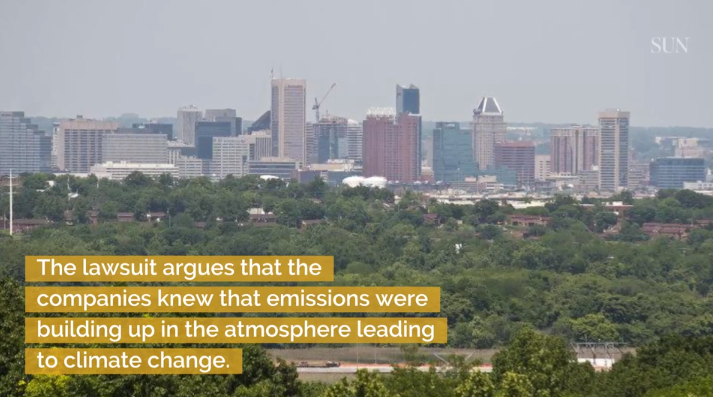s extreme weather strikes with greater frequency and ferocity — especially on the East and West coasts of the U.S. — media attention rightly focuses on the often heroic response of the emergency services. What is missing from these accounts, however, is a similar emphasis on climate change as a source of the increasing extremity of these events, and consequently, on preventing ever-worsening weather calamities. It is even more problematic when the causes of these events are misdiagnosed, as when the president attributed California’s worst forest fires ever to “poor forest management.”
The upshot of failing to make the climate change connection is that actions continue to be limited to dealing with disasters after they strike without taking urgent steps to contain runaway global warming. As climate inaction continues, weather disasters are poised to reach a point where no amount of good management will be enough. The 2018 report from the United Nations is clear: Human actions and greenhouse gas emissions are contributing to global warming, and unless the planet’s temperature increase (from pre-industrial times) is kept to below 1.5 degrees centigrade, weather catastrophes will go over the tipping point.
There are many policy and technological avenues for climate mitigation, but they all start with a change in our mindsets to link the new weather extremes to global warming. That is necessary if a winning political platform for climate action is to be created. Political support and resources for climate abatement will unleash the innovation and adaptation in ways we may not have anticipated. This has been seen time and again in other global crises, be it tackling terrorism or pandemics, where treating the problem had to be complemented by attending to the root causes.
But unlike terrorism and pandemics, climate change presents a fuzzier — and potentially deadlier — chain that connects cause and effect. The effects of climate change still tend to be viewed as something over the horizon rather than here and now. This perception must change: In 2017 and 2018 the worst floods and fires on record were seen not only across the globe but on United States’ soil in California, Texas, Florida and Puerto Rico.
Drawing on this type of evidence, news reporters must make the climate-disaster connection so that people see the extremity of the episodes as manifestations of global warming. The resulting shift in understanding should also trigger a political movement to see climate action as a pro-progress agenda, and a political platform that can help win elections. Florida’s Democratic candidate for governor, Andrew Gillum, developed a plan to preserve the state’s natural resources, curb harmful blue-green algal blooms and red tide, and invest in renewable energy to fight climate change. We need to see environmental agendas like this among the criteria for winning elections.
To spur action, we also need to view weather disasters as local affairs. The wildfires that swept across the town of Paradise in California in just eight hours are every bit local. So is Hurricane Michael, which hammered Florida’s Panhandle. These events also need to be seen as national disasters rather than natural disasters. The United States is the second largest emitter of greenhouse gases after China. The lowering of power plant emissions standards by the administration and encouraging the use of fossil fuels will only aggravate sea-level rises along the country’s long coastlines.
Television and newspapers have the biggest bully pulpit in the United States. The current administration’s policies show a reckless disregard for the factors behind the increase in weather disasters, endangering the well-being of people for years to come. The media can make a difference in this unfavorable setting by connecting the dots between climate and disasters in real time and helping to make environmental care a live political agenda.
If enough people recognize the true climate-disaster link, positive actions will follow.
Vinod Thomas (Vndthomas91@yahoo.com) is author of a 2018 book “Climate Change and Natural Disasters” (Routledge) and a former senior vice president at the World Bank.



